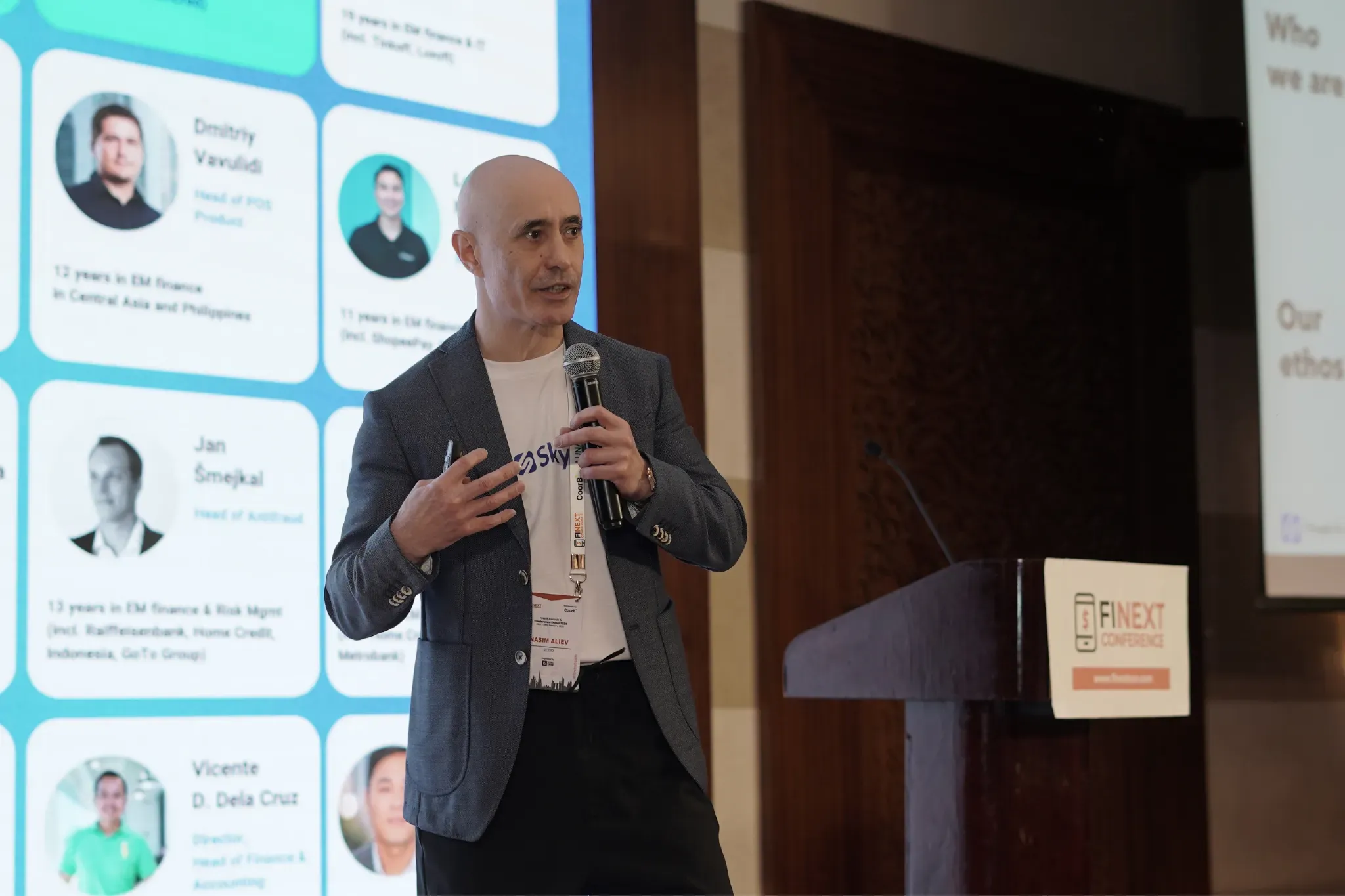
March 7, 2024
Skyro takes the lead in addressing industry challenges to propel growth of PH's fintech market
Nasim Aliev shares how Skyro acknowledges challenges and builds a foundation to foster market growth
The Philippine fintech sector faces hurdles, dealing with challenges that impede its progress. These obstacles include the absence of a centralized database, reliance on outdated technology, and various other industry-specific barriers.
This was revealed by Nasim Aliev, co-founder and co-CEO of Skyro, a fast-growing fintech provider in the Philippines, during the FiNext Conference in Dubai last February 28, 2024.
Nasim mentioned that with over 20 different types of Philippine IDs, each bearing different purposes, Filipinos are struggling to have access to financial services they urgently need.
“This poses a huge problem for fintech businesses as it inhibits cross-referencing information and customer data verification, increasing reliance on biometric measures,” added Nasim.
To overcome this challenge and quickly bring its services to over 500,000 customers by year-end, Skyro adopts advanced global technologies based on big data, generative AI, machine learning, and other external data, to generate scores that help people get access to financing. This, combined with the aid of advanced risk management models, helps the brand minimize risks twofold and generate a positive net present value (NPV).
Furthermore, Skyro is laying the groundwork for a robust and accurate credit scoring model that leverages data exchange with external sources in response to industry data challenges. Other partner companies have begun engaging with the brand for synergy, aiming to build a more sustainable fintech landscape in the country.
Skyro’s strategy for growth, the opportunities in the local fintech landscape
Despite these challenges, Nasim mentioned that the Philippines' fintech landscape poses a lot of opportunities for growth and innovation.
With half of the Philippines’s population belonging to the 24 and below age group, according to Nasim, Skyro projects increased demand for financial services for this demographic in the next 10 years, with about 20 million young people moving up in their careers and wealth, further magnifying the demand for diverse financial services.
The co-founder of Skyro also indicated an untapped market for lending firms to penetrate, providing responsible lending services to the upper middle and affluent classes.
This market segment bridges the gap between banks that offer low yearly interest for affluent customer segments but are inaccessible for less affluent Filipinos and loan sharks and predatory lenders with high interest rates that prey on middle and lower-income segments.
Nasim stated that it is important to remain steadfast in gaining the trust of the consumers. As proof, he mentioned that in the Philippines, Skyro currently has a 94% regional penetration, consisting of 16 regions, 76 municipalities, and 139 cities, the brand was able to establish 2,500 point-of-sale (POS) locations.
Through understanding the culture and masterful entrepreneurship, Skyro was able to generate an average of 50% compound monthly growth rate in under a year according to Nasim.
“We have discovered that culture plays a vital role in the success of an organization operating in a difficult international market such as the Philippines. By fostering a culture of empowerment within the company, we at Skyro prioritize gathering authentic insights from our Filipino colleagues to craft solutions tailored to local culture, ensuring their relevance and effectiveness in the Philippine market alongside global standards. In addition, data science, technology, testing, and evolution are essential for understanding the market, driving change, and maximizing entrepreneurship,” he remarked.
Nasim concluded with a brief mention of the Butterfly Effect, a concept that reflects the journey of how Skyro’s modest upbringing and actions positioned it for growth and profitability and emphasizes how its small business’ continuous efforts amount to driving a bigger purpose.
“We started as a small organization, but we have made a significant impact on the market. Our primary objective is to enhance transparency and efficiency and reduce the amount of asymmetric information available. We do not work for our benefit but aim to increase competition and contribute to the social and economic development of the country,” he closed.
The FiNext Conference & Expo is a digital hub established for the global financial sector, allowing tech start-ups, SMEs, incumbent tech providers, investors, institutions, and other stakeholders to interact and connect in one place.